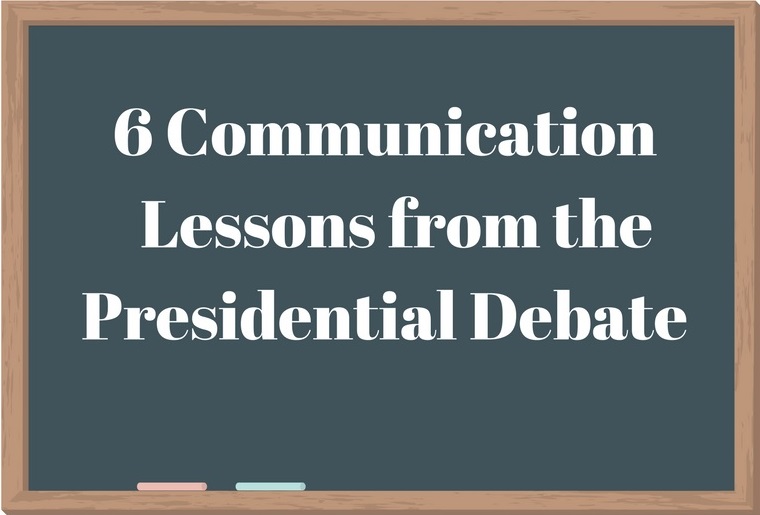Last night was the first of three presidential debates between Donald Trump and Hilary Clinton. Millions watched as the candidates went head to head on issues affecting our country. But, for those of us in the audience who communicate for a living, we were probably watching as much for the lessons in what to do—and NOT to do—as we were for anything else.
Here are six communication lessons we can learn from watching:
- Preparation matters: It was clear to most of the viewing audience that one candidate seemed very prepared—while the other less so. When it comes to important events in our careers—big meetings, presentations, negotiations, speaking engagements—we can’t just “wing it.” Taking the time to prepare appropriately pays off when you can confidently deliver your message and handle tough questions.
- Sometimes, it’s better to say less: We watched several times as Clinton let Trump hang himself by not saying anything. She could’ve intervened, but she waited—and let him go on. This was a strategic move on her part. The more he talked, the more missteps he made. She simply stood by and let it happen. This can apply in a meeting or negotiation, as well—even in written communications. Sometimes, saying less really is
- Moderators need to moderate: Trump continually interrupted Hilary last night—AND he interrupted moderator Lester Holt. Of course, this is bad manners, but if professionals do this, they need to be reigned in. The moderator’s job is to help control the amount of time each person speaks and not allow anyone to step on others’ time. Holt is taking heat for allowing it to go on and not stepping in more assertively. It works the same way when you’re part of a panel at an industry conference, for example. This should be a lesson to anyone moderating—maintain control of the event.
- Keep your cool under pressure: If we’re under pressure, sometimes, we crack. We saw this last night, as Trump continually lost his cool, baited by Clinton multiple times. We must remember that, no matter what happens, we need to keep our composure. Don’t let anyone throw you off your game. When Trump stuck to his game plan, he was able to make some solid points. Unfortunately, that was overshadowed by his inability to remain calm to cool-headedly answer questions and stick to messages he knows resonate.
- Don’t interrupt: Communication 101—try not to interrupt when others are speaking. Yes, sometimes someone will go on and on—and then we may feel the need to try to get a word in edgewise. But, interrupting continually should not be our default mode of operation. It’s rude. Children do it—but they’re children. Professionals shouldn’t operate this way. Keep interruptions to a minimum, if you feel you must interrupt at all.
- Every once in a while, smile: If you noticed last night, the only time Trump smiled was at the end of the debate, while Clinton smiled throughout. Smiling makes you more likable, more relatable. According to The Definitive Book of Body Language, if you smile at your audience, they’re more likely to feel a connection with you (even if the smile is forced). Struggle with remembering to smile? Put a reminder in your notes.
What communication lessons did you learn from watching last night’s debate?

